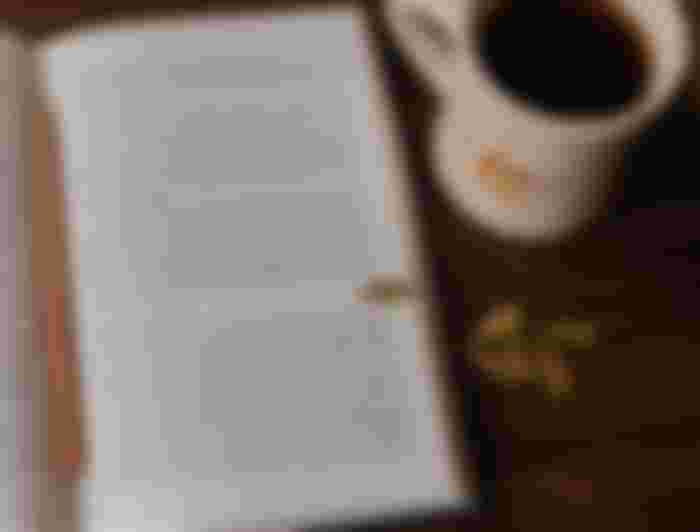Is copyright maintainable? This might seem like a terribly silly question to many, but it is a serious question. As most of us browse the Internet and watch Youtube videos on a daily basis, copyright is part of our everyday reality, whether we like it or not. However, most people are completely ignorant about what is legal under copyright, and pretty much everyone unintentionally violates copyrights on a daily basis. Is this maintainable?
To put things into context
To put things into proper historical context, we need to define what is copyright, and when did it come to be.
Copyright is a legal monopoly someone has over a work - scientific invention, written text, image, composed music, audio recording, motion-picture, source code or computer program - and its distribution. It is very closely linked to the idea of intellectual property, which is the idea that just like tangible things, ideas too can be produced, stolen and are worth money. To have something as your intellectual property means that you get to decide how it is distributed, who can distribute it, and who has permission to create derivative works - typically, to derive from someone else's intellectual property (or use someone else's intellectual property within your own work), you need to license their work, or else you are guilty of copyright violation.

Neither of these two concepts - copyright and intellectual property - are new, as both date back to ancient times, with intellectual property as we know it first being discussed in early-medieval Ireland, and early forms of copyright taking shape in the 16th and 17th centuries as a consequence of the invention of the printing press. However, the first truly modern copyright law was made in 1710: the Statute of Anne. Over time, during the late 18th century and early 19th century, copyright laws were established in France and Germany too, and were finally internationalized during the 20th century with the Berne Convention.

As of 2021, pretty much all countries on Earth - save for a few African, West Asian and South East Asian countries - have signed and ratified the Berne Convention.
Copyright and the copied media

Copyright was rather easy to enforce until the 1970s. It was rather difficult to press vinyl records or shoot movies, pretty much only recording studios could afford to have reel-to-reel tape recorders. Most musicians were signed under major record companies that had lawyers at hand, most cases of plagiarism were either settled out-of-court, or were straight-up ignored, as "imitation is the highest form of flattery" was what musicians believed at the time.
We saw the first cracks in the enforceability of copyright appear in the 1970s, when both audio casettes and video tapes made an appearence, allowing people to straight-up record music and movies from radio and television respectively. Naturally, both the movie industry and the music industry - namely, the Recording Industry Association of America - were majorly irate, but in the end, the "pirates" won-ish...

In the end, people retained their ability to record to their tapes and VHS, albeit quite obviously, they still went after bootleggers, who decided to sell said tapes for money. Recording music and movies from radio and television had one major disadvantage over buying them legally: quality. The quality of a consumer-grade casette tape storing audio recorded from the radio could never compete with the quality of a professionally-mastered tape, let alone a vinyl record or CD - the difference in quality was less noticeable on VHS, albeit it still had a higher-quality alternative for a time: laserdisc. Another fact that I neglected to mention is, that all of these tapes suffered from generation loss, which was one more reason to buy the real deal legally instead of illegally copying from a friend's copy.

Further cracks appeared in the enforceability of copyright law, as generation loss was eliminated by the widespread adoption fully digital storage for audio and video alike: CD in the 1980s and DVD in the late 1990s. At first, they came in read-only formats that you had to buy - eventually, the rewriteable variants entered the scene as well, allowing people to make copies of copies of copies without any fear of generation loss.
Then the Internet appeared
I reckon that the final nail in the coffin for copyright as we know it was the Internet. Not only you could copy pictures, movies and songs from one disk to another - whether compact disk or hard disk - without any generation loss, but now you could also copy from and to the world wide web. As Internet speeds improved, compressed audio formats like MP3 made made it viable to share music on the Internet illegally.

You may not realize it, but when you download any random picture from Google, there is a high chance that you are violating someone's copyright. Yes, it's very silly, because your computer has to download the image into the RAM to even allow you to view the picture, but some people straight-up don't want you to download their images. Why put them on the Internet then?
Eventually, YouTube made its appearance, and copyright as we know it straight-up became obsolete. At this point, copyright-holders aren't even attempting to enforce their copyrights. They simply settled down with YouTube to create a content ID system, which allows copyright holders to harvest some of the ad revenue of any videos that contain their intellectual property.
Most Internet memes violate copyright law one way or another, but knowing how much backlash would there be from actually enforcing copyright law, copyright holders don't even bother to go after the memes.
So, what then?
Public opinions on copyright have clearly evolved.
Before the age of the printing press, writing wasn't really a full-time day-job that you could make a living out of. Most writers were writers secondarily, and primarily something else: monks, priests, bureaucrats, merchants, etc. But in the Western World, primarily monks and priests. Then came the printing press, which allowed the fast spread - and as a result, profiting off - of books, which necessitated the development of copyright.

However, as I said, starting from the 1970s, copyrights became increasingly harder and harder to enforce, and copyright holders have been fighting an uphill battle ever since. Despite that, attempts to enforce copyrights have become increasingly draconian, except when fear of public backlash is a concern.
The way I see it, copyright was originally invented to prevent fraud: to prevent people from passing someone else's work as their own and profiting as a result. However, as of 2021, copyright has evolved into a desperate attempt - mostly by big companies rather than individuals, especially ones that didn't even contribute to the production of the copyrighted material, merely happen to own the rights to them - to lock behind a paywall what cannot be locked behind a paywall.
As it stands today, copyright laws only apply, if you are wealthy enough to have them enforced. Small people can't afford to sue big companies, and can't afford to hire lawyers to defend themselves against copyright claims by big companies either.
So is it maybe time to abolish them?
The way I see it, as long as one credits the original authors, and doesn't intend to profit from their copyright-violating works (big difference), they should be free to do whatever they want. The more we enforce copyright, the more we devolve into a statist world where you require a loicense for everything. In fact, if you ask me, the very existence of copyright and intellectual property negate our Freedom of Speech and Freedom of Expression, and every copyrighted statue limits your right to use your own private property by adding one more thing to the list of things you are not allowed to sculpt out of your stone with your own chisels.
A world before and after copyright
So, if we got rid of copyright, how would authors financially benefit from their works?
Well, the answer to that is in the past... and the future, which is the present.

The answer to that is patronage. Until the appearence and widespread enforcement of copyright, works of art were commissioned by wealthy patrons. In fact, this system continued to coexist with the modern idea of copyright and licensing, and is making, or rather, has already made a comeback, in the form of Patreon, in the form of people commissioning art on DeviantArt and Pixiv, and even OnlyFans. These things are nothing new, but more like a return to an older state of things.
But this puts artists at the mercy of their audiences, right? Well.... doesn't the current system too? In fact, the current system is worse, because the record label has to like your songs before they sign you on, only to find out that the people have voted with their wallets, and they didn't vote for you.
But really, just like all problems, the problem of copyright and intellectual property would be solved with Universal Basic Income, which would allow artists to keep producing art and live comfortably even when it's not financially viable.







